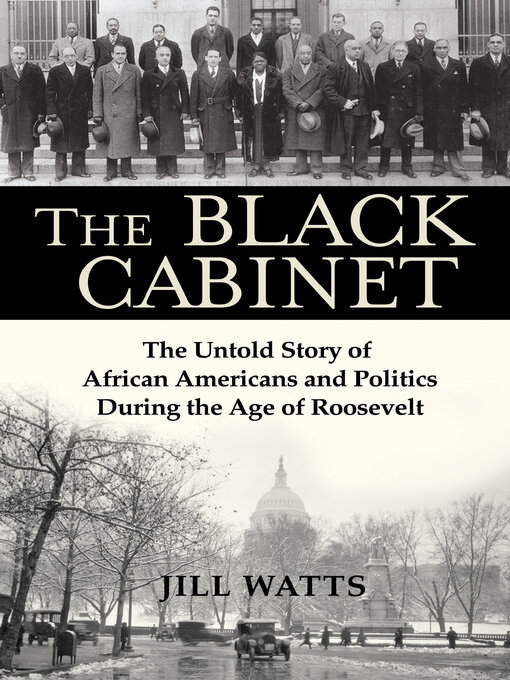- English
- Español
- Français (Canada)
- 中文(简体)
- 中文(繁體)
- 日本語
- Bahasa Melayu
- Русский
- Svenska
- Suomi
- Italiano
- Deutsch
- Dansk
- Reo Māori
- 한국어
- தமிழ்
- Íslenska
In 1932 in the midst of the Great Depression, Franklin Delano Roosevelt won the presidency with the help of key African American defectors from the Republican Party. At the time, most African Americans lived in poverty, denied citizenship rights and terrorized by white violence. As the New Deal began, a "black Brain Trust" joined the administration and began documenting and addressing the economic hardship and systemic inequalities African Americans faced. They became known as the Black Cabinet, but the environment they faced was reluctant, often hostile, to change.
"Will the New Deal be a square deal for the Negro?" The black press wondered. The Black Cabinet set out to devise solutions to the widespread exclusion of black people from its programs, whether by inventing tools to measure discrimination or by calling attention to the administration's failures. Led by Mary McLeod Bethune, an educator and friend of Eleanor Roosevelt, they were instrumental to Roosevelt's continued success with black voters. Operating mostly behind the scenes, they helped push Roosevelt to sign an executive order that outlawed discrimination in the defense industry. They saw victories?jobs and collective agriculture programs that lifted many from poverty?and defeats?the bulldozing of black neighborhoods to build public housing reserved only for whites; Roosevelt's refusal to get behind federal anti-lynching legislation. The Black Cabinet never won official recognition from the president, and with his death, it disappeared from view. But it had changed history. Eventually, one of its members would go on to be the first African American Cabinet secretary; another, the first African American federal judge and mentor to Thurgood Marshall.
Masterfully researched and dramatically told, The Black Cabinet brings to life a forgotten generation of leaders who fought post-Reconstruction racial apartheid and whose work served as a bridge that Civil Rights activists traveled to achieve the victories of the 1950s and '60s.
Praise for The Black Cabinet
"A dramatic piece of nonfiction that recovers the history of a generation of leaders that helped create the environment for the civil rights battles in decades that followed Roosevelt's death." —Library Journal
"Fascinating . . . revealing the hidden figures of a 'brain trust' that lobbied, hectored and strong-armed President Franklin Roosevelt to cut African Americans in on the New Deal. . . . Meticulously researched and elegantly written, The Black Cabinet is sprawling and epic, and Watts deftly re-creates whole scenes from archival material." —Minneapolis Star Tribune


